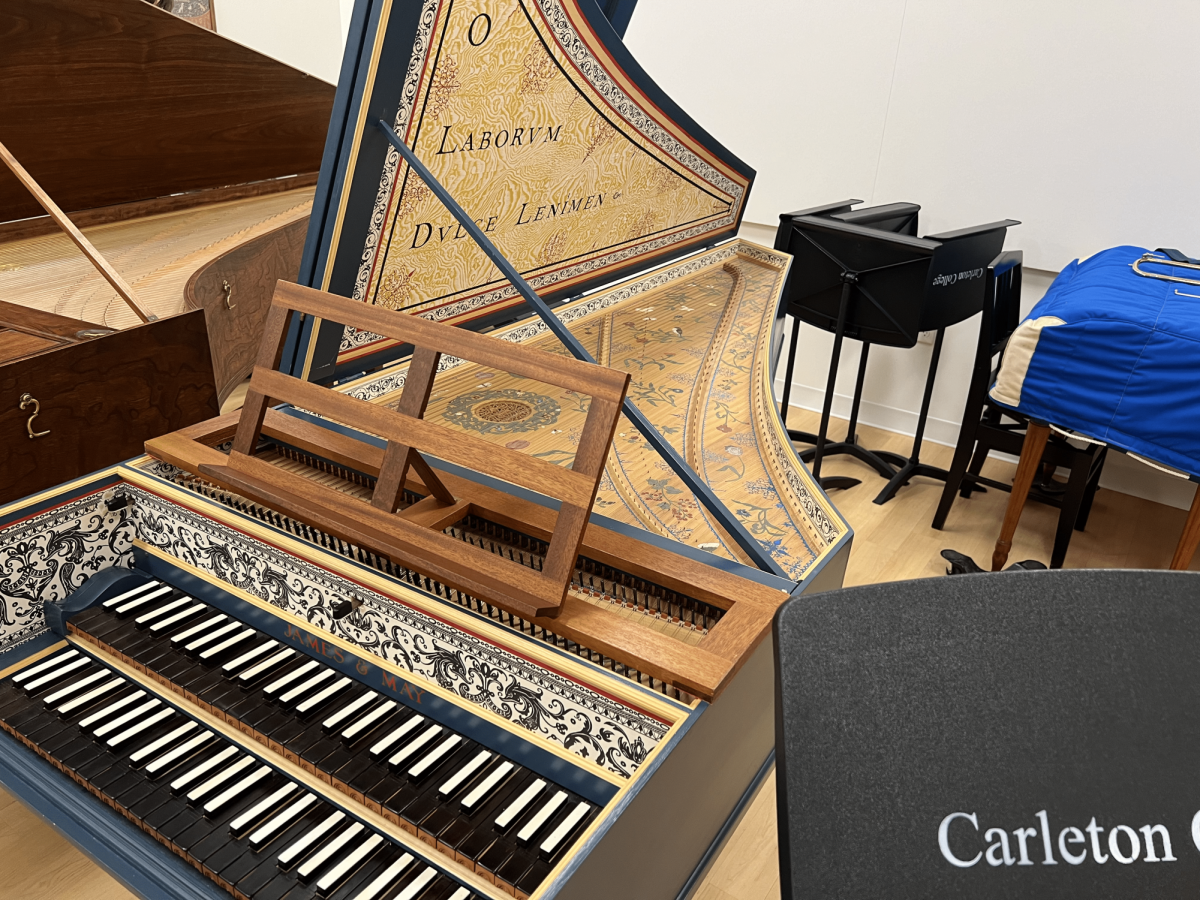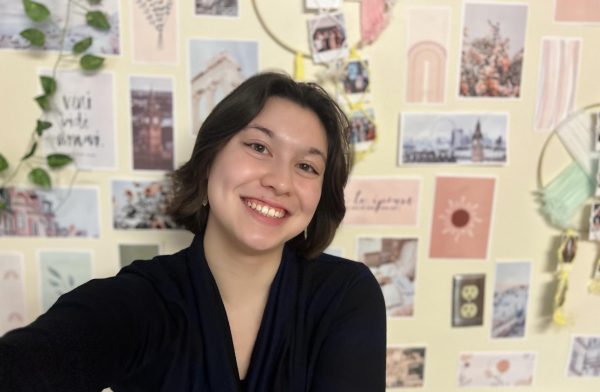On Jan. 4-5, a subsection of Carleton’s instrumental collection was showcased in Weitz Room M31. Called the Early Musical Instrument Petting Zoo, this event allowed students to explore and play these reproductions, from harpsichords to recorders.
This event was hosted by Moira Hill in the music department, who joined Carleton’s faculty last March.
“I was a PhD student at Yale, got my degree, and taught there for another semester. Then I decided for personal reasons to come back to where I had family. I actually come from Faribault,” said Hill. “[I was asked] if I would like to run early music chamber groups because they didn’t have anybody who had the breadth of knowledge that I had on this particular topic. Early music was the focus of my graduate studies.”
Hill held the first iteration of the Petting Zoo during Fall Term in order to raise awareness at Carleton of its early music collection as well as increase interest in this musical era.
“I’m planning on hosting it as a regular event, at least twice at the beginning of each term to give students an opportunity to come in, see the collection and consider whether they want to join an early music chamber group,” said Hill.
“[This] chamber music group in the music department…is a single credit, so there’s an hour of meeting time during the week with me as the instructor, and there’s an expectation for another hour of rehearsal beyond that,” continued Hill. “At the end of the term, all of the groups will play in the final concert. About ten minutes is asked of them.”
Along with this event, Hill plans to create future opportunities for Carleton students to engage in early music.
“I am toying with the idea of having…Renaissance dances where everyone gets together and plays Renaissance music, or maybe a Bach jam where people can come in and play whatever instrument they have. These are ideas that I’m mulling over as possibilities for expanding early music opportunities at Carleton.”
Early music studies held a presence at Carleton prior to Hill’s arrival but has faded in recent years following Professor Emeritus Stephen Kelly’s departure from the music department.
“Carleton has a pretty long history with early music. A professor named Stephen Kelly, taught in the music department from the early ‘70s through the early 2000s. One of his original specialties was early music,” said Professor of History and Director of Medieval and Renaissance Studies Bill North. “He taught a regular course on music history, which placed a lot of emphasis on both vocal music and also instrumental music.”
Many of the reproductions in Carleton’s collection were acquired under Kelly, which allows students today to play instruments from this era without fear of damaging the fragile, original instruments.
“My understanding is that the vast majority of the instruments were acquired under Steve Kelly, who was a professor in the music department for a long time. He had a very strong background in early music, and then moved over to jazz!” said Hill. “But he led the early music ensemble, called Pro Musica, which now is defunct, I think around the early 2000s. But in the course of leading the early music ensemble, he acquired these instruments for people to play…from well-known instrument makers…over the course of the ‘70s, ‘80s, and possibly the ‘90s as well.”
To help promote this collection, the Medieval and Renaissance Studies department was one of the avenues of advertisement for this event, helping word reach more of the student body.
“One of the things that MARS tries to do is support what other faculty are doing…we try when we know about things, like the Petting Zoo,” said North, “to send them out on our email list to send them out and put them on our bulletin board.”
Posting in campus announcements and putting up posters has also helped to promote this event.
“I just saw the poster for it yesterday when I was going to my cello lesson. I came back to practice the cello, and I forgot about the event, but then I saw another poster for it…I like playing with new instruments,” said Coral Outwater ‘25, one of the students to attend the event on Jan. 5. “I just came back from OCS in Japan where I learned to play the shamisen, and that was really cool. It’s like a traditional Japanese instrument. So I thought that it would be cool to check it out…And it was pretty good. I wished some of them were tuned fully, but I also don’t know how old the strings are and how possible that is.”
Some students came to play and experiment with various instruments whereas others came to learn more about specific instruments.
“I’ve always had a harpsichord in my room, and my dad played,” said Tim Abbott ‘26. “I’d love to know more [about them].”
Any students that were unable to attend the event or are interested in seeing and trying out the instruments in Carleton’s collection at another time are able to contact Hill by email.
“I would be happy to show them individual instruments,” said Hill, “or get together and play a little music with them if they would like to have that opportunity as well.”













